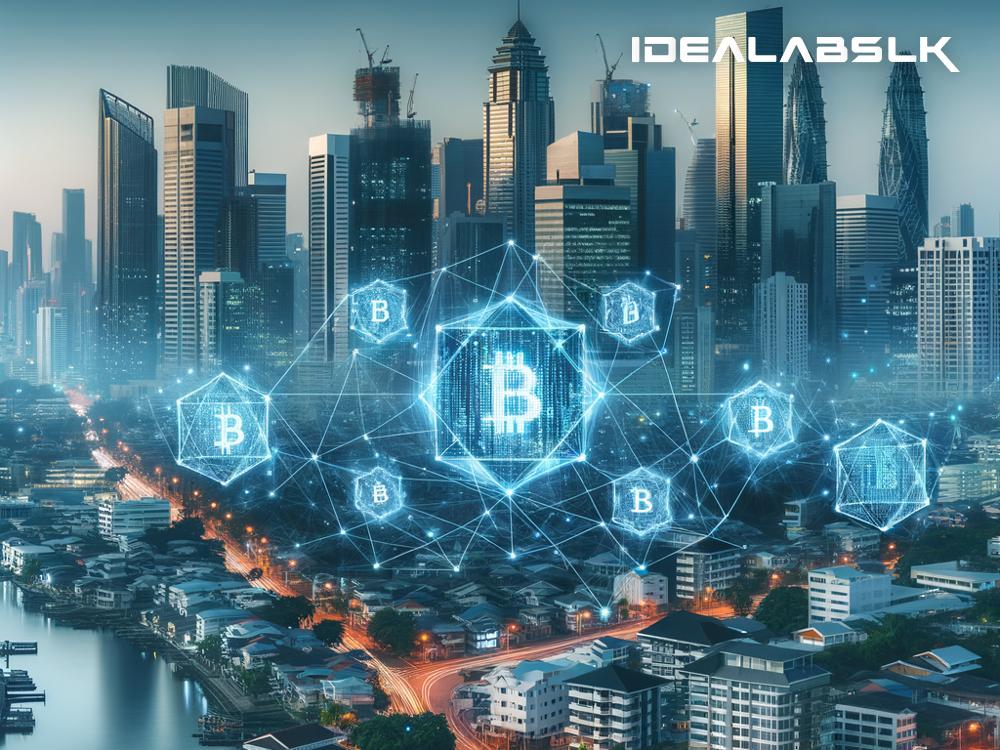Understanding Blockchain in Real Estate: The Game Changer
Real estate—the timeless asset class that's been the cornerstone of wealth for generations. However, many people find the process of buying or selling property daunting, riddled with paperwork, and often, prohibitively expensive. But what if I told you that the times are changing? Thanks to blockchain technology, we're on the brink of a revolution in how real estate transactions happen. The magic word here is "tokenization", a concept that's rapidly transforming the real estate market.
Breaking Down the Jargon: Blockchain, Tokenization, and Real Estate
First things first, let's tackle some of the jargon:
-
Blockchain is essentially a digital ledger or record book that's shared across a network. Imagine it as a digital notebook that everyone can see, but no one can tear a page out of or scribble over what's already been written.
-
Tokenization in real estate means taking the value of a property, or a share of it, and turning it into digital tokens that can be bought, sold, and traded on blockchain platforms. Think of it like breaking down the ownership of a building into little digital pieces that you can own, kind of like owning pieces of a Lego set.
The Big Deal: How Tokenization is Changing the Game
Now that we've got the terms down, let's dive into how all this is shaking up the real estate world:
-
Making Real Estate Accessible: One of the coolest things about tokenization is how it opens up the property market. Traditionally, investing in real estate required a hefty amount of cash upfront. But with tokenization, you can buy a piece of a property for much less money. This means more people can invest in real estate, not just the super-rich.
-
Simplifying the Process: Buying or selling property can be a headache. It's usually a long dance of lawyers, banks, and heaps of paperwork. Blockchain streamlines the process. Since all the info is securely stored and easily accessible on the blockchain, transactions can happen more smoothly and quickly.
-
Improving Liquidity: Real estate is not known for being easily sellable—it's not like you can just decide to sell a building and have the cash in your pocket by the afternoon. However, by breaking down property ownership into digital tokens, these can be traded much like stocks. This means you could potentially sell your property shares much faster, enhancing liquidity in the market.
-
Transparent and Secure Transactions: The beauty of blockchain is its transparency and security. Every transaction is recorded and verified by the network, reducing the risk of fraud and errors. This means a more reliable way of buying and selling property, where trust is built into the system.
Real-Life Impact: Tokenization in Action
Imagine this—rather than needing hundreds of thousands or even millions to invest in real estate, you could jump in with just a few hundred bucks. You'd own a piece of a property (in the form of digital tokens) which you could trade or sell just like stocks. This could change not just how individuals invest, but also open up new opportunities for developers and businesses to raise funds for projects by selling tokens directly to the public.
Challenges and Considerations
Of course, with any innovation, there are challenges. Regulation is a big one. The legal frameworks that govern real estate and financial transactions are complex and vary from one country to another. Adapting these to accommodate blockchain and tokenization is crucial.
Furthermore, there's the matter of public acceptance and understanding. Moving from the physical to the digital, especially in something as traditionally tangible as real estate, requires a shift in mindset and education about the security, reliability, and benefits of digital ownership.
Looking Ahead: The Future of Real Estate
As technology advances and regulations evolve, the potential for blockchain and tokenization in real estate is immense. We might see global markets where anyone can invest in property anywhere, smashing geographical and financial barriers.
Imagine a world where buying a piece of a charming villa in Italy or a bustling commercial space in New York is as straightforward as buying a book online. That's the future blockchain and tokenization are paving the way for—a democratized, accessible, and efficient real estate market.
Indeed, we're standing at the threshold of a new era in real estate. While there are hurdles to overcome, the path forward looks promising. As blockchain technology becomes more integrated into the industry, the dream of a more open, transparent, and accessible real estate market is steadily becoming a reality.
In essence, whether you're an investor, a property owner, or just someone interested in the future of technology and real estate, the wave of change brought about by blockchain and tokenization is something to watch—and, perhaps, to ride.

